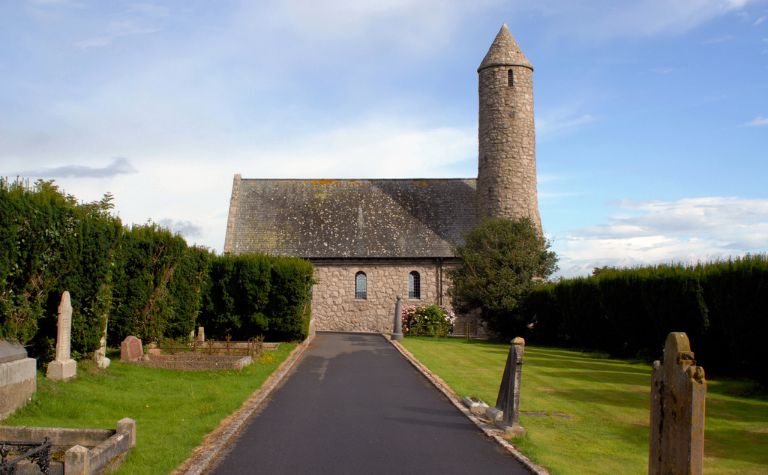Episcopalianism is one of the most historic branches of Protestant Christianity. Many people are aware of its historical connections to the Anglican church. The Anglican church incorporates aspects of Protestant and Roman Catholic Christianity. These facts have led people to wonder if the Episcopalian Church affirms the doctrine of purgatory.
The Episcopal Church doesn’t believe or teach the doctrine of purgatory. Important documents in the Episcopal-Anglican tradition call purgatory unbiblical and criticize the Roman Catholic Church for promoting it.
Why doesn’t the Episcopal Church believe in purgatory? What exactly does the Episcopal Church teach concerning the nature of heaven and hell? Read on to explore answers to these questions and others.

Why Doesn’t the Episcopal Church Believe In Purgatory?
The Episcopal Church doesn’t believe in purgatory because the Bible, in their view, doesn’t teach the doctrine. Significant historical statements in the Episcopal-Anglican tradition mentioned the doctrine but only to denounce it.
The Book of Common Prayer, which is the guiding document for the worldwide Anglican communion, clearly refutes the doctrine as having no basis in Scripture.
“XXII. Of Purgatory. The Romish Doctrine concerning Purgatory, Pardons, Worshipping and Adoration, as well of Images as of Relics, and also Invocation of Saints, is a fond thing, vainly invented, and grounded upon no warranty of Scripture, but rather repugnant to the Word of God.” [1]
According to the teachings of the Episcopal Church, purgatory has never been a focus of the tradition. “Purgatory is seldom mentioned in Anglican descriptions or speculations concerning life after death, although many Anglicans believe in a continuing process of growth and development after death.” [2]
Although historically, the Episcopalian-Anglican teaching has incorporated Protestant and Catholic beliefs and practices, it reflects Protestant theology when it comes to the doctrine of purgatory.
As a central conviction, the Episcopal Church rejects doctrines it believes have no biblical support. Certain church traditions may have a history of promoting certain beliefs and practices, but that fact isn’t sufficient for establishing doctrine in the Episcopalian tradition. [1]
Specifically, the Episcopalian church rejects the idea that a Christian must toil away in an afterlife waiting room to enter heaven. According to the Episcopalian tradition, the Bible teaches that Jesus’s blood is sufficient to cover the wrongdoing of those who believe. Therefore, it’s foolish to teach that one’s effort can help achieve future bliss.
However, the Episcopal Church is not dogmatic about believers going to heaven when they die. Because the Bible doesn’t explain the immediate state of deceased believers, the Episcopal Church permits various viewpoints among its members.
Episcopal leadership welcomes a variety of viewpoints within their congregations. Some Episcopalians believe in a version of purgatory that is similar to Catholic teaching, others believe in some sort of waiting area for believers, and still others simply believe that God will take care of the souls of those who love him. All these viewpoints are welcome in an Episcopal Church.
Also, see What Bible Translations Do Episcopalians Use? to learn more.

What Does the Episcopal Church Believe About Heaven?
The Episcopal Church has more to say about heaven and the eternal state than purgatory. This includes the time in heaven before Jesus’s return and the time on the New Heavens and New Earth.
Episcopalians have always valued early Christian creeds, such as the Nicene and Apostles Creeds, which teach about the resurrection of the dead at the end of time. Many Episcopalians also believe that the Bible gives significant attention to the resurrection of the dead.
According to this line of thinking, the resurrection was the basis of hope for early Christians. The Bible doesn’t offer many details about what the eternal state will be like. However, descriptions of it employ negative language, like when the Bible says that there will be no death or suffering in heaven.
“And God shall wipe away all tears from their eyes; and there shall be no more death, neither sorrow, nor crying, neither shall there be any more pain: for the former things are passed away.’ (Rev. 21:4, KJV)
What the Bible is very clear about is that in the next life, believers will fully be with God. Christians, therefore, don’t need to fear death. If Christ is faithful to his followers in this life, then he will be faithful to them in the next life.
In John 14:2-3, God says that he has prepared a place for Christians, giving them no doubt about whether he will take care of them.
“Let not your heart be troubled: ye believe in God, believe also in me. In my Father’s house are many mansions: if it were not so, I would have told you. I go to prepare a place for you. And if I go and prepare a place for you, I will come again, and receive you unto myself; that where I am, there ye may be also.” (John 14:1-3, KJV)
However, a Christian’s ultimate hope lies in the resurrection. Many Episcopalians believe that a body is necessary for the completeness of a human being. This rejects the idea that the body is less valuable than the soul.
The Bible teaches that the resurrection body will be both the same and different from peoples’ current bodies. Jesus is an example of this and is the firstfruits of the resurrection. His body was still flesh and blood, but he was also no longer limited to all of the normal laws of nature and could appear on the other side of a locked door. [2]
Also, see Do Episcopalians Believe in Transubstantiation? to learn more.

What Does the Episcopal Church Believe About Hell?
According to The Book of Common Prayer, hell means “eternal death in our rejection of God.” Like many things in Anglican theology, this teaching is phrased carefully. It places the emphasis on humans rejecting God rather than on God rejecting people.
In a similar way, those in heaven chose to be with God. That, in fact, is what makes heaven so wonderful: it is unending communion with both one another and God.
Many Episcopalians believe in some version of hell but viewpoints vary.
- Some are annihilationists who don’t think that hell is an eternal state but a temporary one.
- Some others are universalists who believe that, ultimately everyone will be saved and go to heaven. Others contend that universalism contradicts the definition of hell that is given in The Book of Common Prayer.
References:
[1] Source
[2] Source
Related Questions
Episcopalian and Baptist are two of the largest branches of the Christian faith in America, though churches belonging to each tradition can also be found around the world. Many people know that...
Many people have heard of the Episcopalian and Methodist denominations but don't know the differences and similarities between their respective churches. People may also be aware that both traditions...
